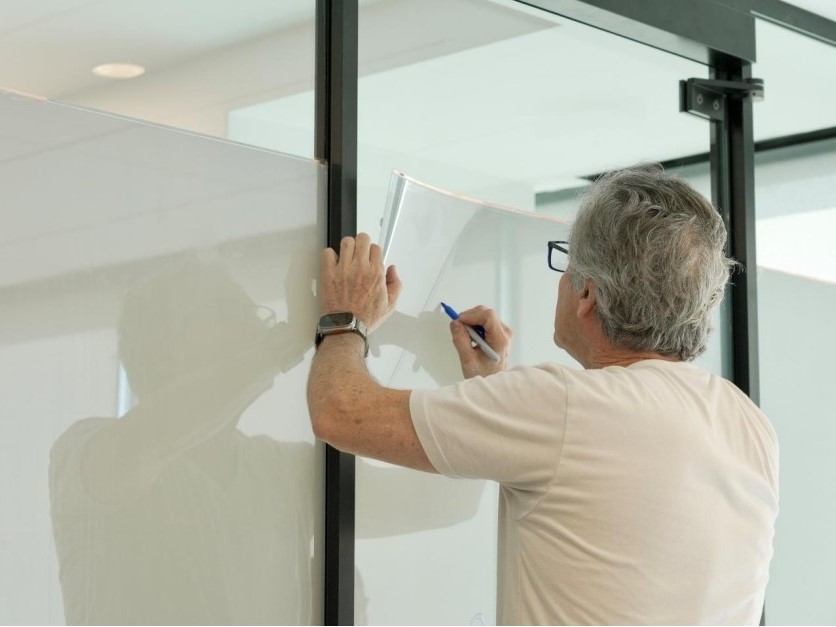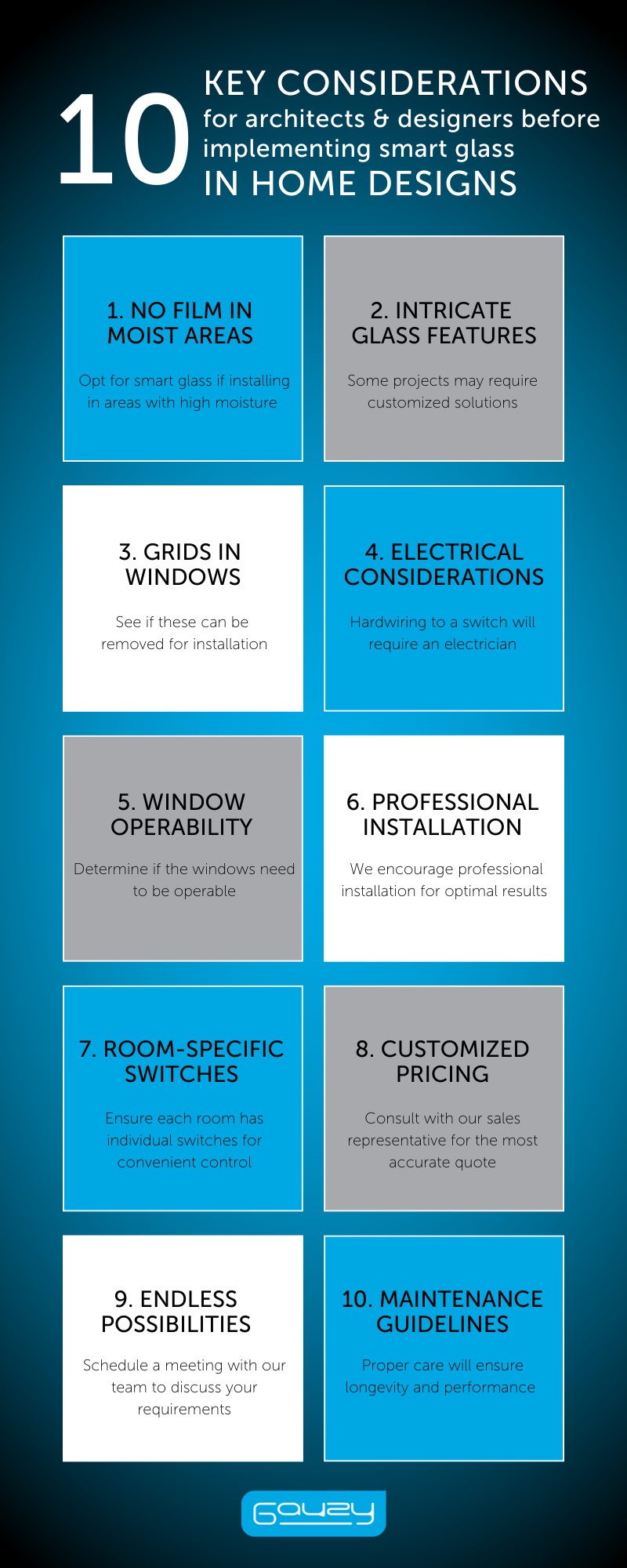Smart glass technology, once a futuristic concept, is now becoming an integral part of modern living. With its ability to switch from transparent to opaque at the touch of a button, smart glass offers both privacy and energy efficiency. This technology is increasingly popular in residential applications, transforming homes with sleek, versatile, and functional solutions. However, before diving into the installation of smart glass, it’s crucial to make an informed decision. Understanding the differences between smart film and smart glass, along with the key considerations for installation, can help ensure the best outcome for your project.

Smart Film vs. Smart Glass
Before starting your project, one crucial decision to make is whether to choose smart film or smart glass. Below are the main features of these technologies to help guide your research.
Smart film, also known as retrofit film, uses PDLC (polymer dispersed liquid crystal) technology and is designed to be applied to existing windows, converting them into smart glass without needing to replace the glass itself. This makes smart film an ideal solution for projects where replacing glass is not feasible or when the glass needs to be thinner than a double pane. It is a cost-effective option for retrofitting existing glass and is easy to apply to current glass surfaces, making it suitable for temporary projects and renovations. Additionally, smart film comes with scratch-proof protective coatings for durability. However, it is not as durable as laminated smart glass and requires specific cleaning protocols to be confirmed with the manufacturer. Furthermore, because the film is exposed, it offers limited protection from both sides.
Laminated smart glass is produced by sealing a sheet of PDLC film between two panes of glass, resulting in a durable and long-lasting product. This type of smart glass is installed by a glazier and connected to a power source by an electrician, making it best suited for new constructions or major renovations where replacing glass is part of the
project. Laminated smart glass is highly durable since the film is protected from the elements and is easy to clean and maintain. It is suitable for humid and high-traffic areas and is available in various sizes, grades, and custom patterns. However, it comes with a higher cost due to the need for new glass installation, takes longer to install compared to smart film, and requires professional installation by certified specialists.
10 Key Considerations for Architects and Designers Before Implementing Smart Glass in Home Designs
When considering smart glass solutions for your home, here are some key points to keep in mind to ensure optimal performance and satisfaction:
- No Film in Moist Areas: Smart film isn’t suitable for high-moisture areas like showers or bathrooms. While there are workarounds, these might affect the warranty. For such areas, smart glass is a better option.
- Intricate Glass Features: Installing smart glass in intricate features such as staircases or cabinets may require customized solutions. Discussing your project specifics can clarify the feasibility and scope.
- Grids in Windows: If your windows have grids, consider whether they can be removed, as they may affect the installation process.
- Electrical Considerations: All smart glass solutions require hardwiring to a switch on the wall, which involves an electrician. Plan accordingly for the necessary wiring.
- Window Operability: Determine if your windows need to be operable, as this will impact the installation process and the type of smart glass or film used.
- Professional Installation: Both smart glass and film installations require delicate handling and precision. Professional installation is strongly recommended for optimal results.
- Room-Specific Switches: For multiple rooms, ensure each room has individual switches for convenient control, allowing tailored privacy and light management.
- Customized Pricing: Each project is unique, and pricing can vary. Consult with our sales representatives for accurate quotes tailored to your specific needs.
- Endless Possibilities: Smart glass technology offers a wide range of possibilities. Schedule a meeting with our team to explore the best solutions for your unique requirements.
- Maintenance Guidelines: Familiarize yourself with the maintenance and care instructions for smart glass and film to ensure longevity and performance. Ask your sales representative for the maintenance and care guide for your product.
Understanding the differences between smart film and smart glass is essential for making an informed decision. Both technologies offer unique benefits, from energy efficiency to instant privacy. It’s important to thoroughly research and consult with professionals to determine the best fit for your project. As smart glass technology continues to evolve, staying informed about the latest trends and advancements will help you make the most of these innovative solutions. At Gauzy, we’re here to assist you with any questions and provide the perfect smart glass solution tailored to your needs. Let’s make your space smarter, together!

Want to learn more about Smart Glass or receive a quote? Contact the Smart Glass experts at Gauzy today.









